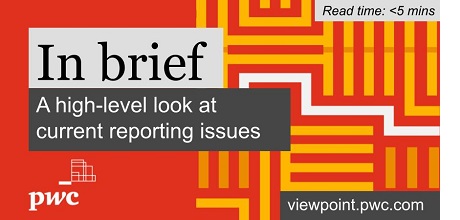Search within this section
Select a section below and enter your search term, or to search all click PwC UK in briefs

Favorited Content
© #year# PricewaterhouseCoopers LLP. This content is copyright protected. It is for your own use only - do not redistribute. These materials were downloaded from PwC's Viewpoint (viewpoint.pwc.com) under licence.
Any trademarks included are trademarks of their respective owners and are not affiliated with, nor endorsed by, PricewaterhouseCoopers LLP, its subsidiaries or affiliates.

Select a section below and enter your search term, or to search all click PwC UK in briefs











